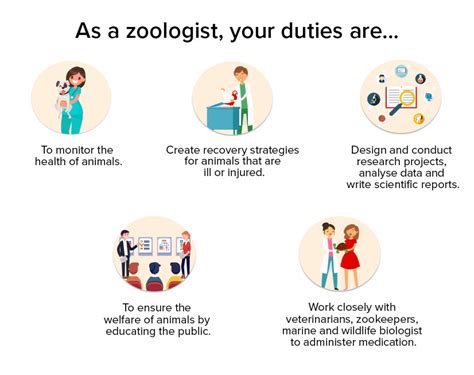Introduction

Zoology, the scientific study of animals, offers a captivating field of study that delves into the intricate world of our animal companions. Pursuing a zoologist degree opens doors to a plethora of career opportunities, empowering individuals with the knowledge and skills to delve into the complexities of animal biology, behavior, and conservation. Embarking on this academic path requires a solid foundation in core academic disciplines, fostering a comprehensive understanding of the animal kingdom.
Prerequisite Courses
Before embarking on a zoology degree program, students must establish a strong foundation in core academic subjects. Typical prerequisites include:
- Biology: A firm grasp of biological principles, including cell biology, genetics, and ecology, provides the cornerstone for zoological studies.
- Chemistry: A solid understanding of fundamental chemical processes underpins an understanding of animal physiology and biochemistry.
- Mathematics: Statistical and analytical skills are essential for interpreting complex biological data and modeling animal populations.
Undergraduate Degree Requirements
A bachelor’s degree in zoology typically requires the completion of foundational coursework and specialized zoology electives. Common coursework includes:
- Introductory Zoology: An overview of animal diversity, anatomy, physiology, and behavior.
- Invertebrate Zoology: An exploration of the diverse array of animal groups lacking backbones, including insects, mollusks, and worms.
- Vertebrate Zoology: A comprehensive study of animals with backbones, examining their anatomy, physiology, and evolutionary relationships.
- Animal Behavior: An examination of the diverse behavioral patterns exhibited by animals, including mating, communication, and predator-prey interactions.
- Conservation Biology: An investigation of the principles and practices involved in the conservation of animal species and their habitats.
Graduate Degree Requirements
For those seeking advanced zoological knowledge and expertise, graduate degrees offer a pathway to specialized research and professional development. Common graduate degree programs include:
- Master’s Degree in Zoology: A one to two-year program that deepens the understanding of zoology through advanced coursework, research, and a thesis.
- Doctorate Degree in Zoology: A three to five-year program that prepares students for careers in academic research and teaching, requiring extensive original research culminating in a dissertation.
Career Opportunities
A zoology degree opens doors to a wide range of rewarding career paths, including:
- Animal Ecologist: Studies the interactions between animals and their environment.
- Conservation Biologist: Develops and implements strategies to protect animal species and their habitats.
- Wildlife Biologist: Manages wildlife populations and investigates their behavior and ecology.
- Zoo Curator: Oversees the care and management of animals in zoos and aquariums.
- Animal Veterinarian: Provides medical care and treatment to animals.
Motivations for Pursuing a Zoologist Degree
Passion for Animals: A deep passion for animals and a desire to understand their complexities is a driving factor for many aspiring zoologists.
Intellectual Curiosity: Zoology satisfies an inherent curiosity about the natural world and the fascinating diversity of animal life.
Conservation Concerns: An awareness of the challenges facing animal populations and ecosystems motivates many individuals to pursue zoology as a means to contribute to conservation efforts.
Career Opportunities: The broad range of career opportunities available to zoologists provides a compelling reason to pursue this field of study.
Benefits of a Zoologist Degree
Comprehensive Animal Knowledge: Graduates possess a comprehensive understanding of animal biology, behavior, and ecology.
Research Expertise: Advanced degrees provide training in scientific research methods, equipping graduates with the ability to conduct original research in animal science.
Problem-Solving Skills: Zoology fosters critical thinking and problem-solving abilities, which are essential for addressing complex issues in animal conservation and management.
Communication Skills: Effective communication is crucial in zoology, and graduates develop strong written and verbal communication skills through coursework and research presentations.
Personal Fulfillment: A career in zoology offers opportunities for personal fulfillment and a sense of purpose by contributing to the understanding and protection of the animal kingdom.
Frequently Asked Questions (FAQs)
-
What is the job outlook for zoologists? According to the U.S. Bureau of Labor Statistics, the job outlook for zoologists and wildlife biologists is projected to grow 5% from 2020 to 2030, faster than the average for all occupations.
-
What are the salary expectations for zoologists? Salaries for zoologists vary depending on education, experience, and location, but the median annual salary for zoologists and wildlife biologists was $68,860 in May 2021, according to the U.S. Bureau of Labor Statistics.
-
What are the challenges of being a zoologist? Challenges in zoology include working in diverse environments, potential exposure to hazardous animals, and the emotional toll of dealing with animal welfare issues.
-
What are the applications of zoology outside of traditional research and conservation? Zoologists contribute to diverse fields such as biomedicine, biotechnology, and forensic science, applying their knowledge of animal biology to advance these areas.
-
What are some emerging areas of zoology? Cutting-edge fields in zoology include animal cognition, genomics, and the use of technology in animal conservation.
-
Is it possible to pursue a zoology degree online? Yes, some universities offer online or hybrid zoology degree programs, providing flexibility for individuals with busy schedules or geographic constraints.
-
What are the financial aid options available for zoology students? Financial aid options include scholarships, grants, and student loans, which vary depending on the university and individual circumstances.
-
What professional organizations are available for zoologists? Professional organizations such as the American Society of Zoologists and the Wildlife Society provide networking opportunities, resources, and continuing education for zoologists.
Conclusion
A zoologist degree equips individuals with a profound understanding of the animal kingdom and empowers them to contribute to the advancement of animal science and conservation. By fulfilling the rigorous academic requirements, graduates embark on a fulfilling career path that combines passion for animals, intellectual curiosity, and the desire to make a meaningful impact on the world.
